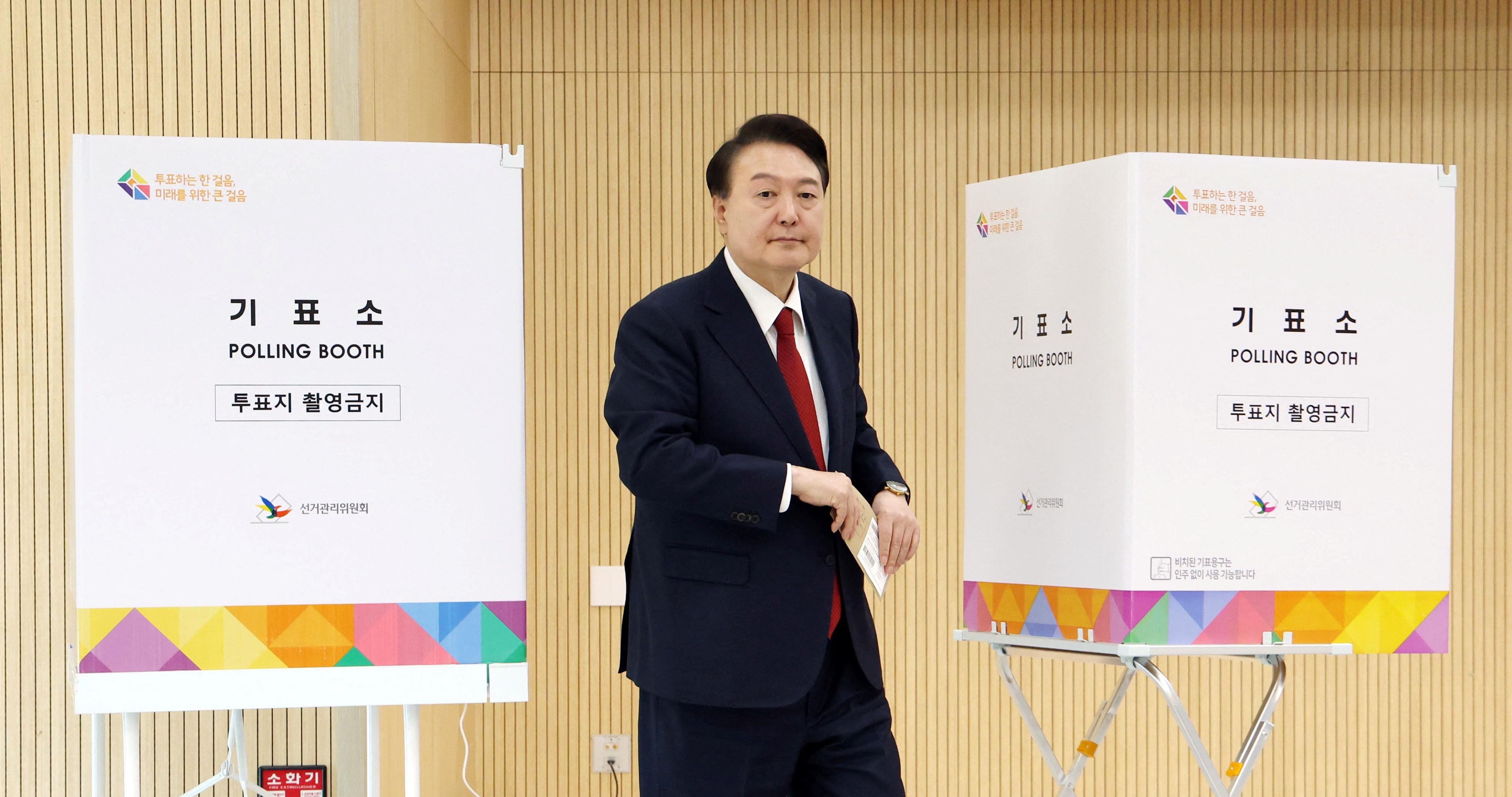Today, South Korea held its quadrennial parliamentary election, which ended in the opposition liberal party’s landslide victory. The liberal camp, combining the main opposition liberal party and its two sister parties, won enough seats (180 or more) to unilaterally fast-track bills and end filibusters. The ruling conservative party’s defeat comes as no surprise since many South Koreans entered the election highly dissatisfied with the Yoon Suk-yeol administration and determined to keep the government in check.
What does this mean for South Korea’s foreign policy for the remaining three years of the Yoon administration? Traditionally, parliamentary elections have tended to have little effect on the incumbent government’s foreign policy. However, today’s election may create legitimate domestic constraints on the Yoon administration’s foreign policy primarily by shrinking Yoon’s political capital and legitimacy to implement his foreign policy agenda.
For example, in pursuing a trilateral security partnership with the United States and Japan to deter North Korea and counterbalance China, Yoon has had to endure strong public backlash against his decision to accommodate Japan’s position on the issue of compensating Korean victims of Japanese forced labor during World War II. The Yoon administration’s indirect provision of munitions to Ukraine against Russia and its critical stance on China regarding the Taiwan issue have also seemingly been at odds with public sentiments — with polls reflecting that many South Koreans are worried about being too involved in Taiwan and Ukraine issues.
There are bolder steps Yoon might take in advancing his so-called “value-based” foreign policy agenda, like directly arming Ukraine against Russia; further aligning with the United States against China, such as by endorsing U.S. semiconductor restrictions against China and pursuing closer ties with Taiwan; and upgrading military ties and coordination with Japan. Again, such initiatives would defy domestic opposition to increasing tensions with China and Russia, reject calls to maintain stable economic ties with China, and ignore public wariness about moving too fast in normalizing military relations with Japan without addressing the thorny historical issues.
A ruling party victory would have provided Yoon with the political capital he needs to pursue his foreign policy agenda. But its massive defeat will likely put Yoon on course to become a lame duck. Keeping Yoon as the party's face could also lead to another failure in the 2027 presidential election, so the ruling party will be inclined to keep him at a distance and tread more carefully about aligning Yoon with controversial issues. This could mean that the ruling party may abandon Yoon on some of his more controversial foreign policy initiatives. Whereas Yoon may now want to prioritize his foreign policy agenda, the ruling party may want to emphasize pragmatism that appeals more to the large coalition of non-partisan voter base in South Korea.
The opposition liberal party will also have greater legislative freedom to unilaterally pass politically contentious bills, such as a bill ordering a special investigation into the first lady’s corruption scandal, that Yoon would likely veto. Repeated direct interventions in the legislative process will likely consume a good deal of Yoon’s political capital that could otherwise be used to advance his foreign policy initiatives.
The election result may not necessarily mean Yoon’s foreign policy initiatives face an imminent threat of deadlock or reversal. He appears to have a strong personal commitment to his “value-based” foreign policy and has expressed a firm willingness to pursue his agenda regardless of domestic pressure. Nevertheless, with shrunken political capital and legitimacy, it seems clear that he is now in a more difficult place to exercise the kind of personal influence he has had on South Korea’s foreign policy thus far.













